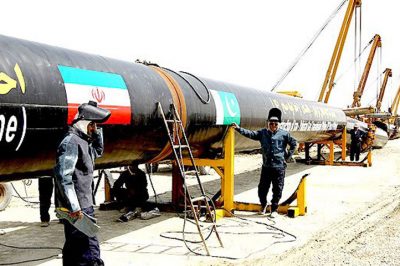Islamabad, 24 April 2024 (WAI): The United States has cautioned Pakistan about potential sanctions after Pakistan promised increased cooperation with Iran. This warning came following a significant visit by Iranian President Ebrahim Raisi, marking the first Iranian president to visit Pakistan in eight years.
During Raisi’s three-day trip, both countries pledged to boost their bilateral trade to $10 billion annually over the next five years, a significant increase from the current $2 billion. They also agreed to collaborate on energy projects, including electricity trade and the Iran-Pakistan gas pipeline.
The U.S. expressed concerns about Pakistan’s engagement with Iran despite these agreements. However, in a show of respect for Pakistan’s autonomy, the U.S. Department of State cautioned anyone considering business deals with Iran, highlighting the risk of sanctions. They acknowledged Pakistan’s crucial role in determining its foreign policy decisions.
According to foreign policy expert Muhammad Faisal, the U.S. sanctions threats are aimed at dissuading Pakistan from deepening its ties with Iran and increasing the costs associated with such engagements. He noted that Pakistani banks are reluctant to engage directly with Iranian counterparts due to fears of repercussions from the U.S. sanctions regime.
Also Read: US approves $61B military aid for Ukraine
The proposed gas pipeline project, intended to span over 1,900 kilometers from Iran’s South Pars gas field to Pakistan, has faced significant challenges for more than a decade. These challenges include political instability, international sanctions, and concerns over potential U.S. sanctions. While Iran has invested $2 billion in constructing its portion of the pipeline, progress on the Pakistani side has been hindered, further complicating the project’s future.
Pakistan has hinted at seeking a waiver from the U.S. to proceed with the pipeline construction on its territory. This move underscores Pakistan’s delicate balancing act between its economic needs, regional partnerships, and its relationship with the U.S.
The U.S. has a longstanding history of imposing sanctions on Iran to curb its income from oil and target entities supporting Iran’s Islamic Revolutionary Guard Corps and militant groups like Hamas, Hezbollah, and the Houthis. Despite these challenges, Pakistan is exploring alternative avenues for expanding trade with Iran, such as through barter systems and border markets involving local chambers of commerce.
Raisi’s visit to Pakistan aimed to strengthen bilateral ties, particularly in the wake of tensions earlier in the year when Iran conducted attacks on Pakistani territory. As Pakistan navigates its relationships with Iran and the U.S., it faces pressure to align its foreign policy decisions with its economic interests and security concerns. Balancing these competing interests will be crucial for Pakistan’s future diplomatic engagements.
Political Analyst | M.Phil. Scholar








